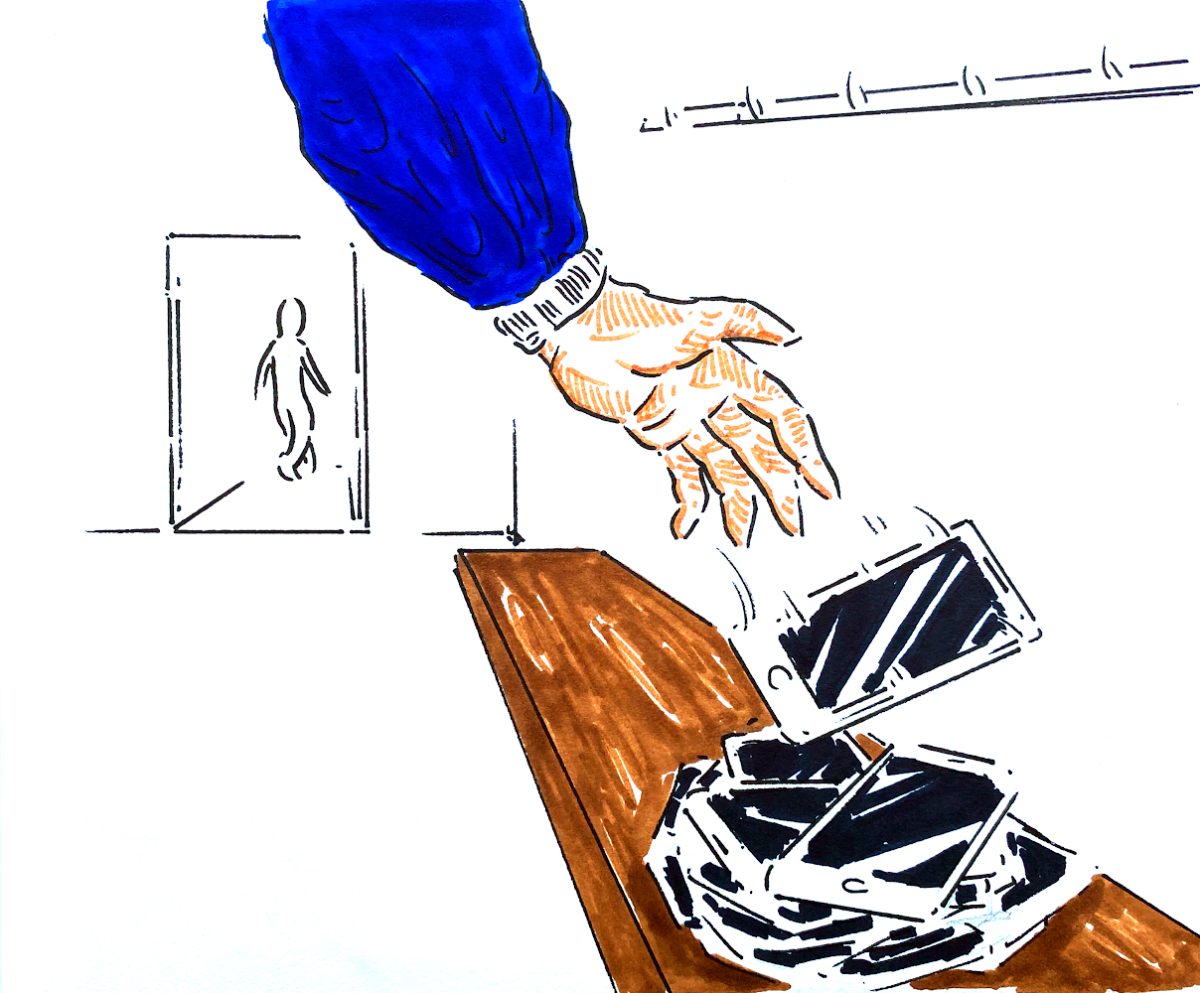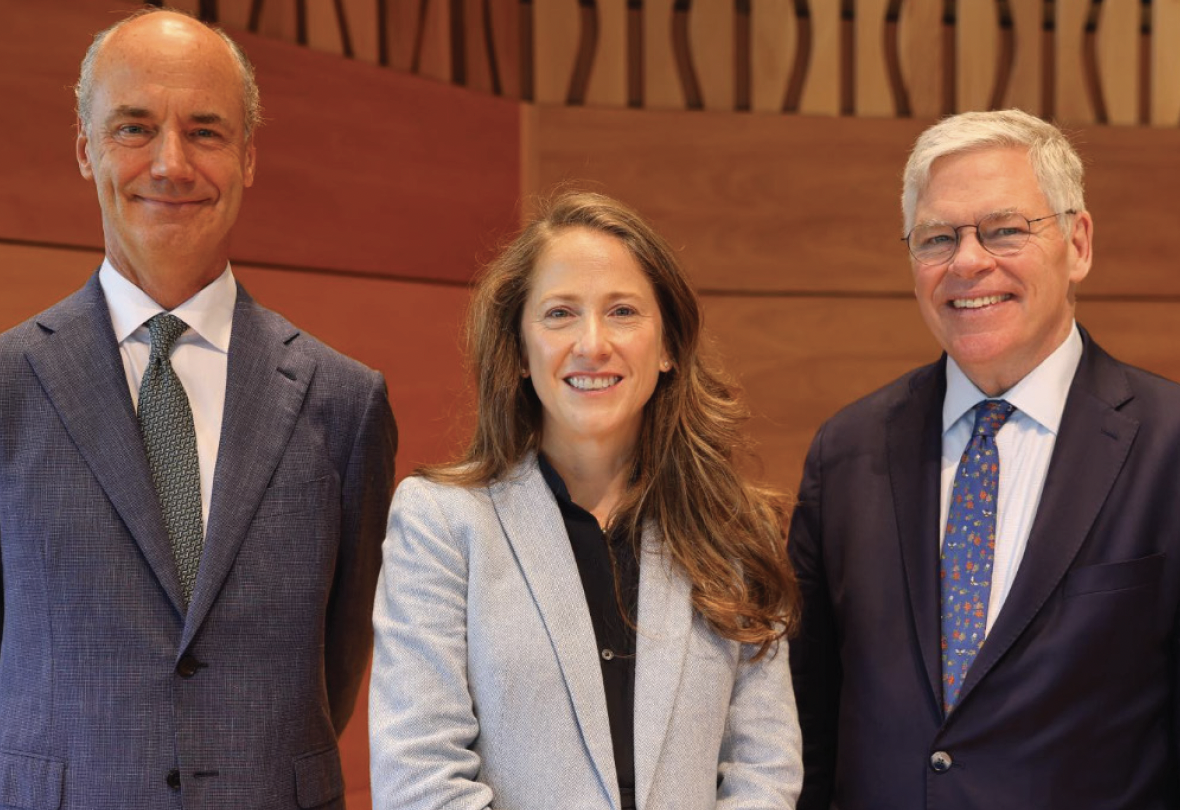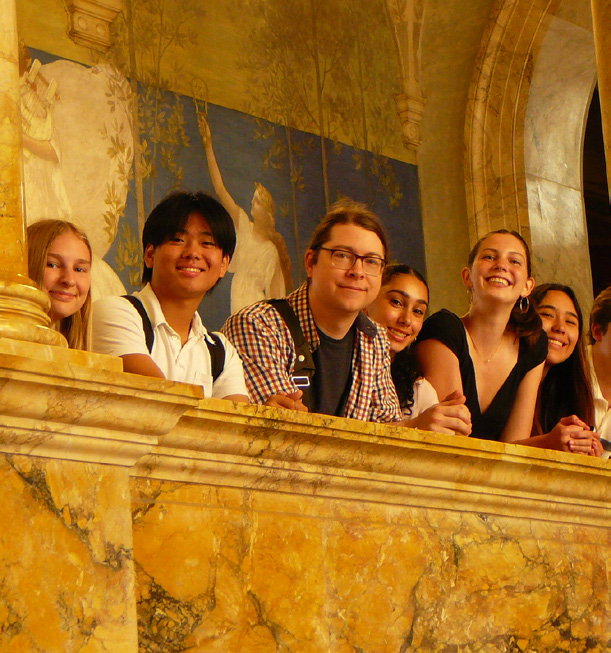You can’t escape the truth: the school has cracked down on cell phone use. Regulations enacted just last year prohibited phone use in Elfers, Walker Auditorium, classes, and the dining area of the FFC. And this year, the school has decided to get even stricter. New rules prohibit visible phones altogether in many areas of the school. During study hall, Preps and Lower Mids must also leave their phones in a box with a proctor.
The administration has said that prohibiting phones in the FFC will increase community bonding by encouraging people to interact with each other at meals. Although the sentiment is appreciated (reviving face-to-face conversation is an important goal!), it is unrealistic and unproductive to hinge these high aspirations on a policy as small as device concealment. Forty-five minutes of screen-free conversation is not sufficient to promote community engagement; to meet such an ambitious goal, our school would need to undertake a far more radical change that would involve addressing the student culture of overwork.
Prohibiting the use of phones in soft seating in the FFC undercuts the reason for the area’s existence in the first place. Soft seating was originally created as a space for student gatherings in order to make up for the lost Student Center area (which was revamped to host continental breakfast). But the new phone policy negates the ability for soft seating to be a hangout spot—people don’t want to spend time in a space where they get in trouble simply for having their phones out.
The policies aren’t all bad—the ban on phones in classrooms, Walker, Elfers, and chapel does work to strengthen community. It promotes respect for speakers while also encouraging people to branch out and talk to the person sitting next to them. Banning visible phones in classrooms is beneficial by that same logic: making sure that students are focused on the lesson and showing respect for the teacher is key to cultivating a productive learning environment.
Lastly, let’s address the final element of the new device policies: taking away phones during study hall. This policy has immediate benefits, but may have future draw-backs. Taking away students’ phones during study hall helps them maintain focus. This is helpful, especially for new students who may not be used to study hall. While it does help students work more productively in the short term, in the long run it could create bad habits. Younger students need to learn how to study even with their phones and practice exercising self-control. When students stop having nightly study hall as Upper Mids, they will have a harder time trying to resist the distraction, as there won’t be anyone to take phones away from them.
While the changes in the phone policy largely fulfill worthy goals, some of the new modifications seem to contradict the original reasoning for such device regulations in the first place. If you ask me, it’s back to the drawing board… time for Cell Phone Policy Version 3!











